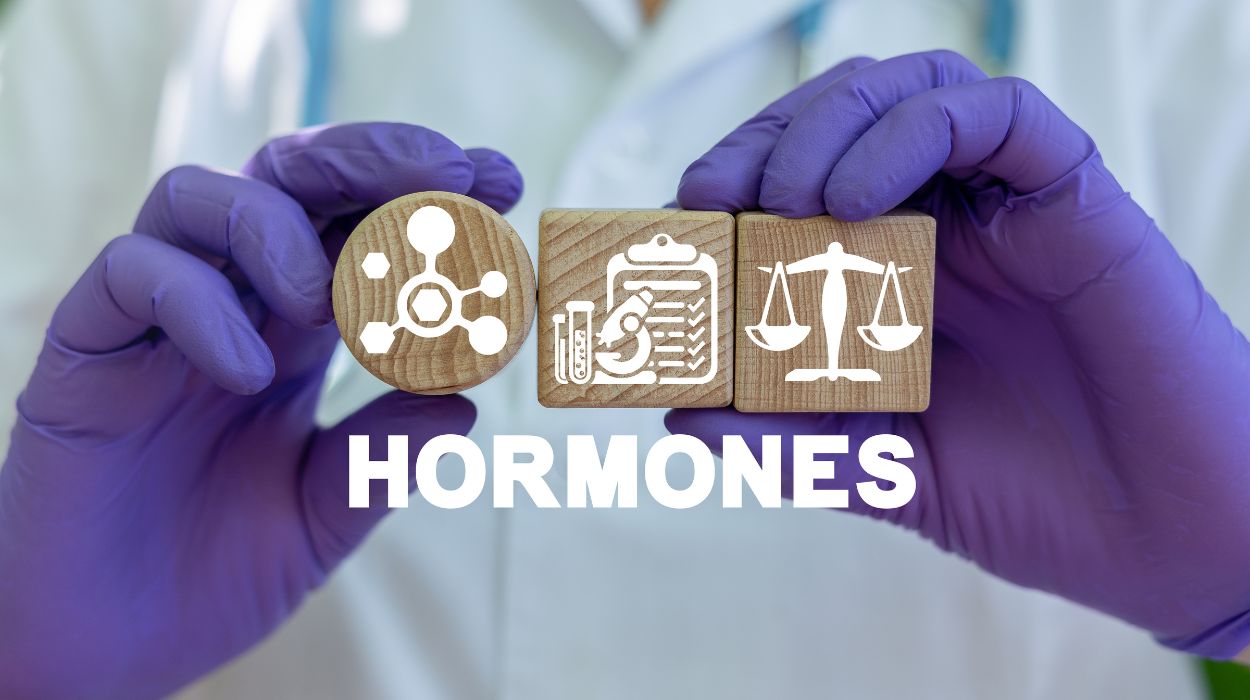Losing weight can be a frustrating process, especially when it feels like your body is working against you. One of the key factors that influences weight loss results is your hormone levels.
Hormones regulate various processes in your body, including hunger, metabolism, and fat storage. When certain hormones are out of balance, it can lead to weight gain and make it extremely difficult to lose weight.
How to balance my hormones to lose weight is one of the most common questions we get. Do various supplements affect your hormones? In this article, we’ll answer those questions and explore how to balance hormones to lose weight and stay at a healthy weight effectively.
How To Balance Your Hormones To Lose Weight
- Follow a hormone-balancing diet.
- Exercise strategically.
- Manage stress.
- Support your liver.
- Correct nutrient deficiencies.
- Consider bioidentical hormone replacement.
How To Balance Hormones To Lose Weight

Balancing your hormones is essential for losing weight sustainably and keeping it off long-term.
Here are some of the most effective ways to balance hormones for weight loss:
Follow A Hormone-Balancing Diet
A healthy diet has a big influence on hormones and can help you lose weight. How many calories you eat every day is also important when it comes to weight loss. Here are some dietary strategies to balance hormones using a hormone diet.
- Choose complex carbs: Refined carbs and processed sugars cause spikes and crashes[1] in blood sugar and insulin, which is the main regulatory hormone for weight loss and body storage. It is important to track how many carbs per day because it can influence hormones. Focus on complex carbs like oats, quinoa, sweet potatoes, fruits, and vegetables.
- Increase protein: Eating more protein helps balance insulin and ghrelin,[2] the hunger hormone. It also helps retain muscle while losing fat.
- Healthy fats: Omega-3s, monounsaturated fats, and MCT oil help control inflammation,[3] balance hormones, and enable fat burning.
- Nutrient-dense foods: Pack your diet with fiber, antioxidants, vitamins, and minerals through vegetables, fruits, nuts, seeds, and herbs.
- Avoid endocrine disruptors: Limit consumption of processed foods, plastics, conventional body care products, and non-organic produce to minimize toxin exposure.
Exercise Strategically
Exercise is great for balancing hormones when done right. Try utilizing the following tips:
- Lift weights: Strength training[4] is key for building metabolism-boosting muscle and normalizing insulin sensitivity.
- Do cardio: Engage in both high-intensity interval training[5] and low-intensity steady-state cardio to reap the cardiovascular and fat-burning benefits of both.
- Movement throughout the day: Take movement breaks, walk, stretch, avoid prolonged sitting, and get enough steps each day to lose weight and keep hormones balanced.
Manage Stress
Chronic stress disrupts hormone regulation. You can try these strategies to curb stress.
- Relaxation practices – Meditation, deep breathing, yoga, and prayer help activate the body’s relaxation response, which is important for the regulation of stress hormones.[6]
- Sufficient sleep – Getting seven to nine hours of quality sleep every night[7] curbs cortisol and balances metabolic hormones. Also, you still burn calories while sleeping. If you want to learn how many calories do you burn while sleeping, you can read our article in which we deep dive into that subject.
- Fun activities – Make time for hobbies, social connection, and laughter to relieve stress.
- Adaptogens – Herbs like ashwagandha, Rhodiola, and ginseng help counteract the effects of stress[8] and balance stress hormones.
- Spend time outdoors – Being in nature lowers cortisol and boosts feel-good endorphins. Endorphins are secreted by the brain when you do pleasurable activities such as exercise and eating. It is one way the body rewards you for doing good things for you.
Support Your Liver
The liver is the main organ responsible for processing hormones and regulating metabolic function. Optimizing liver health and function is imperative for balancing hormones and losing weight.
Here are some highly effective strategies that you can try to fully support your liver:
- Drink enough water – Every day, you want to drink plenty of water to stimulate and cleanse your liver. Water helps flush toxins while supporting enzyme production.
- Consume liver-loving foods – Enjoy an abundance of garlic, leafy greens like kale and spinach, cruciferous veggies, avocado, olive oil, grapes, berries, legumes, nuts, and seeds that all support liver detoxification.
- Take targeted liver-boosting supplements – Milk thistle, dandelion root, alpha lipoic acid, NAC, and glutathione support Phase 1 and Phase 2 liver detoxification[9] pathways.
- Drink liver-cleansing herbal teas – Green tea, milk thistle tea, dandelion root tea, and schizandra berry tea protect and can help nourish liver cells.
- Reduce alcohol intake – Alcohol directly taxes the liver.[10] If consuming alcohol, allow 48+ hours between drinks to give your liver time to fully recover.
- Avoid unnecessary medications – Do this when possible. Process medications and chemicals burden the liver’s detoxification capacity.
- Sweat regularly – Try to sweat via sauna, exercise, or heat therapy. Sweating releases wastes and toxins via the skin and can help take the burden off the hard-working liver.
- Consider a periodic liver cleanse – Under supervision, a focused liver cleanse using supplements and foods can flush accumulated toxins.
Supporting healthy liver function every day with the right diet, supplements, fasting, and lifestyle practices is instrumental for balancing your hormones, boosting metabolism, and losing weight sustainably.
Correct Nutrient Deficiencies
Being deficient in key nutrients can lead to hormone dysfunction. Make sure to get sufficient vitamin D, selenium, iodine, zinc, and magnesium to support your body.
Vitamin D is present through sun exposure or foods such as fatty fish and fortified foods. Selenium is in Brazil nuts, tuna, eggs, and poultry.
You can get iodine from seafood, iodized salt, eggs, and dairy. Oysters, beef, pumpkin seeds, and legumes are great sources of zinc.
You can supply your body with magnesium through leafy greens, nuts, seeds, and beans.
Consider Bioidentical Hormone Replacement
If efforts to balance hormones through lifestyle changes like diet, exercise, and stress management aren’t giving you the results you want, exploring bioidentical hormone replacement therapy[11] or BHRT with your doctor may be beneficial.
BHRT involves taking customized preparations of hormones like estrogen, progesterone, testosterone, DHEA, and thyroid hormones to restore youthful levels.
The term bioidentical means the hormone molecules match exactly human hormones, unlike synthetic versions, which can have slightly different structures. This allows bioidentical hormones to bind to receptors in the body more effectively. Compounded BHRT is customized to your individual hormonal needs and dosed specifically to restore optimal levels based on lab testing.
Of course, as with any medical therapy, there are some risks and side effects[12] to evaluate with your practitioner. However, for many people with significant hormonal deficiencies, BHRT can be a transformative tool when done properly under expert supervision.
If you’ve made the right lifestyle changes without the desired improvements, BHRT may provide immense benefits for optimizing your hormones to finally lose that stubborn weight. Speak to your doctor first on balancing your hormones to lose weight.
How Hormones Can Impact Your Weight
Hormones have widespread impacts on metabolism, hunger signals, energy levels, fat storage, and more.
Insulin
The pancreas releases insulin when blood sugar enters the bloodstream. Insulin is responsible for helping the cells use this blood sugar for energy. Insulin resistance drives weight gain, with one analysis finding it caused a significant risk of obesity.[13]
Cortisol
Cortisol is referred to as a stress hormone. Higher cortisol exposure tends to be associated with increased abdominal obesity[14] despite some factors like age and exercise. The stress hormone cortisol promotes fat accumulation[15] around the midsection.
Estrogen
Women going through menopause and the accompanying drop in estrogen[16] tend to gain more abdominal fat.
Testosterone
Middle-aged men with low testosterone are more likely to be obese. One study found that testosterone therapy reduced body fat mass by an average of 6.2% over 36 months.[17]
Thyroid
Even mild thyroid dysfunction can hinder weight loss efforts.[18] Consider talking to your doctor to check your thyroid hormone levels.
Balancing all your hormones is critical for controlling appetite, reducing inflammation and belly fat, building calorie-burning muscle, and enabling effective weight loss.
How Do I Know If I Have Hormonal Weight Gain?

Here are some signs that may indicate hormonal imbalances leading to weight gain:[19]
- Fat gain in specific body areas like the belly, hips, or back of the neck.
- Increased appetite and food cravings.
- Fatigue, low energy, and difficulty concentrating.
- Sleep problems like insomnia or frequent waking.
- Slow metabolism and difficulty losing weight.
- Irregular periods[20] or loss of periods.
- Thinning hair and hair loss.
- Skin changes like acne, dryness, and discoloration.
- Mood changes like anxiety, irritability, and depression.
If you are experiencing several of these symptoms along with stubborn weight gain and you’re thinking how do I balance my hormones to lose weight, it’s a good idea to have your hormone levels tested. A doctor can check for hormone imbalances like insulin, cortisol, thyroid, estrogen, testosterone, and growth hormone.
Treating any underlying hormone imbalances, along with making diet and lifestyle changes, can get your body back on track to lose weight more effectively.
Conclusion
Hormones are the command centers of your metabolism. Imbalances in hormones like insulin, cortisol, estrogen, testosterone, and thyroid can wreak havoc on your weight.
Correcting any hormone dysfunction and optimizing your levels within normal ranges is essential for losing weight sustainably.
Focus on hormone-balancing strategies like a nutrient-dense diet, liver support, stress management, targeted exercise, and correcting nutrient deficiencies. Get tested for any hormonal imbalance. Consider bioidentical hormone replacement if appropriate.
With a holistic approach, you can get your hormones working for you instead of against you to more effectively shed excess pounds.
Frequently Asked Questions
Yes, balancing hormone levels is key for successful weight loss. Hormones regulate appetite, metabolism, fat storage, and energy expenditure. Correcting any imbalances and deficiencies in key hormones will improve your body’s ability to lose weight.
The two main female sex hormones, estrogen and progesterone, help control appetite and optimize fat burning when balanced properly. Boosting low estrogen and ensuring sufficient progesterone can aid female weight loss.
No, vitamin D does not directly increase estrogen levels. However, vitamin D is needed for proper estrogen metabolism.[21] Making sure to get sufficient vitamin D can help maintain estrogen balance.
Most people need 2,000 to 5,000 IU[22] of vitamin D per day. Your doctor can check your blood levels of vitamin D and recommend an appropriate dose to correct any deficiency and support hormonal balance.
There is no single pill that will correct all hormone imbalances. Medications like birth control pills, estrogen pills, testosterone therapy, supplements and thyroid medication can be used to restore optimal levels of specific hormones.
 Evidence Based
Evidence Based
